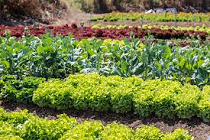
ENV 370: Food & Environmental Policy in Italy & Europe
Course description
The Food and Environmental Policy in Italy course will examine how EU policy in three linked areas interact and are applied in the Italian context. The three areas are the Common Agricultural Policy of the EU (the CAP, one of the EU’s largest and most expensive programs); the UN Sustainable Development Goals to the extent that they affect food production and trade in agricultural products; and the Geographical Indications (GIs) and Quality Schemes, which protect food and drink products. Italy is the country with the most protected products in the EU so it is the perfect case study for understanding the rationale and effects of the European scheme.
Learning Outcomes and Assessment Measures
Below are the course’s learning outcomes, followed by the methods that will be used to assess students’ achievement for each learning outcome. By the end of this course, students will be able to:
- identify the main legislative sources for the three policy areas—the CAP, the UN Sustainable Development Goals, and GIs, i.e. the primary EU legislation, be it in the treaties, in EU Regulations and in EU Directives. In the case of directives, find out how the directives have been ‘translated’ into Italian law (Weekly Quiz, Course Journal, Final Project);
- summarize connections between the three policy areas and whether they exist in a relationship of conflict or synergy (Course Journal, Final Project);
- distinguish between hard law duties EU countries are subjected to, and policy options (Weekly Quiz, Course Journal, Final Project);
- analyze different kinds of protected products schemes in Umbria and their relative success;
- integrate the acquired legal knowledge and the firsthand experience in food production in Umbria in the context of one of the EU policy goals (Final Project).
